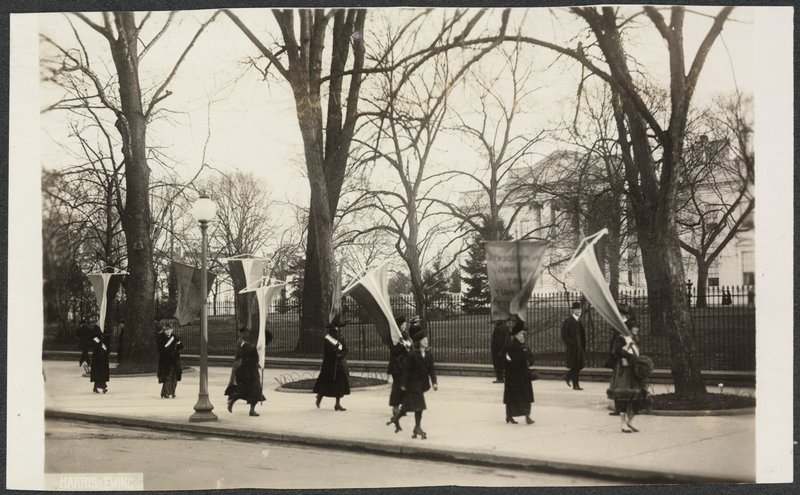Throwback Thursday: The Massachusetts Congressman Who Did Not Want Women to Vote

Suffragettes picket the White House. Image via Wikimedia Commons
Ninety-seven years ago today, 10 women were arrested for picketing outside the White House. For months, hundreds of suffragettes had stood outside President Wilson’s home, protesting his refusal to support an amendment that would give women the right to vote. They have come to be known sometimes as “iron-jawed angels,” thanks in part to a Hillary Swank TV movie by that title and in part to the Massachusetts Congressman who first referred to them by that name.
… Except he didn’t mean it as a compliment.
In January 1917, women began standing outside the White House to pressure President Wilson to support their cause. He treated them respectfully, but when the United States entered World War I, the women’s protests grew more provocative. How could Wilson support a war to “make the world safe for democracy,” as he said, when women in the U.S. remained disenfranchised?
Some of the women who were arrested through those later months went on hunger strikes and were force-fed in prison. President Wilson grew nervous that he might lose public sympathy. At the same time, he warmed to the idea of an amendment. In September, the House of Representatives created a committee to explore adoption of the Susan B. Anthony Amendment. Representative Joseph Walsh of Massachusetts was not happy about it. According to a New York Times report:
Representative Walsh of Massachusetts opposed the measure, declaring that it would be yielding to ‘the nagging of iron-jawed angels.’ and said the White House pickets were ‘bewildered, deluded creatures with short skirts and short hair.’
Though he had an ear for branding, Walsh was on the wrong side of history. In January 1918, a year after protesters decamped to his doorstep, Wilson gave his support to the amendment. In 1919, Congress passed the 19th Amendment, officially giving women the right to vote.
Meanwhile, in 1922, Walsh was appointed a justice to the state Superior Court. He died in 1946, perhaps realizing by then (or perhaps not) that his reference to the women who pushed for the vote as “nagging,” “iron-jawed,” and “short haired” would, in retrospect, feel more like rallying cry than a criticism.

